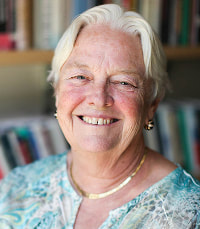McPartlan, who specialized in Learning, Teaching, Cognition, and Development for his doctoral work, is a postdoctoral fellow in the psychology department at San Diego State University. His research interests are centered on how the classroom environment affects academic motivation.
Umarji specialized in Human Development in Context for his doctoral work. Currently, he is the director of survey research and evaluation at Yaqeen Institute for Islamic Research, where he continues his study of parental influences on child development, student motivation, and adolescent development. Eccles's academic research focuses on gender-role socialization, classroom influences on student motivation, and social development in the family and school context. She is internationally recognized for her development of the expectancy-value theory of motivation and her concept of stage-environment. Abstract We illustrate how early adolescents use different patterns of ability feedback to promote a positive self-concept of ability (SCA) in mathematics. Students can simultaneously use ability appraisals from parents and teachers, while also drawing information from peer, dimensional, and temporal comparisons. Although we find these five sources are equally important for promoting students’ positive SCA, on average, we use a pattern-centered approach to show that students who believe they are good at math often select certain feedback sources as more important to develop this belief. We find that students’ patterns of ability feedback are unstable, with evidence suggesting different patterns may emerge depending on the availability of ability feedback. Findings suggest early adolescents attempting to promote their own positive SCA in mathematics may know to seek different feedback sources depending on their individual circumstances. Implications are discussed through the lens of social comparison theory. Comments are closed.
|
Resources for:
|
|




